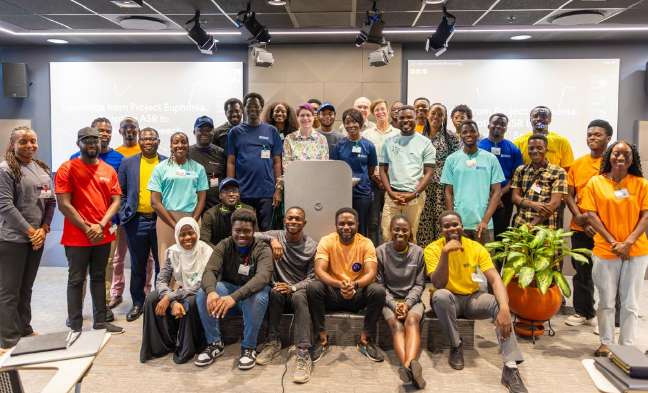
The University of Ghana has launched “tɛkyerɛma pa” (Good Tongue), an AI-based project designed to enhance communication for people with non-standard speech patterns, in partnership with Google Research Africa and UCL’s Global Disability Innovation Hub (GDI Hub).
In order to make communication more accessible for everyone, this project aims to improve AI-powered voice recognition technology for the five main Ghanaian languages: Akan, Ewe, Ikposo, Dagbani, and Dagaare.
Communication has been extremely difficult for many people with non-standard speech around the world because of diseases like Parkinson’s disease, Down syndrome, ALS, stroke, or cerebral palsy.
The efficacy of current speech recognition technology is limited by their frequent inability to correctly comprehend non-standard speech.
By training AI models to better comprehend various speech patterns in local languages, the tɛkyerɛma pa project seeks to close this gap and improve accessibility, making speech recognition more inclusive for Ghanaians with non-standard speech.
“No one should be left behind, and we are excited to lead this important initiative,” said Prof. Isaac Wiafe, Project Lead and Associate Professor at the University of Ghana, at a press conference and tech talk at the Google Ghana office to highlight the progress of Project Euphonia.
“By developing localized AI solutions, we can ensure that more Ghanaians have the opportunity to communicate effectively, regardless of their speech patterns,”
Project tɛkyerɛma pa is funded by a $40,000 grant from Google, and the AT2030 initiative provides research expertise from UCL’s GDI Hub.
The University of Ghana is working on Project tɛkyerɛma pa, and Katrin Tomanek, Senior Research Scientist at Google Research, said she is excited to help their efforts to develop the first open-source collection of non-standard speech in Ghanaian languages.
Regardless of how they say it, she said the project demonstrates Google’s continued dedication to funding AI research in Africa and making sure that technological advancements benefit all.
Prof. Cathy Holloway, Academic Director of the GDI Hub, thinks it’s essential to extend AI-powered recognition to additional languages so that those with non-standard speech may interact with technology and other people more successfully.



